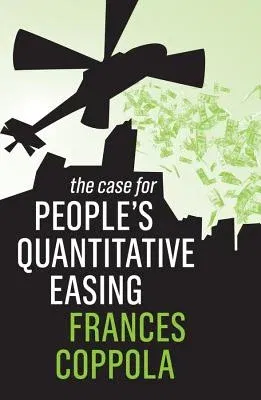Frances Coppola
(Author)The Case for People's Quantitative EasingPaperback, 3 September 2019

Qty
1
Turbo
Ships in 2 - 3 days
In Stock
Free Delivery
Cash on Delivery
15 Days
Free Returns
Secure Checkout

Part of Series
Case for
Print Length
140 pages
Language
English
Publisher
Polity Press
Date Published
3 Sep 2019
ISBN-10
1509531300
ISBN-13
9781509531301
Description
Product Details
Author:
Book Format:
Paperback
Country of Origin:
GB
Date Published:
3 September 2019
Dimensions:
18.8 x
12.45 x
1.27 cm
ISBN-10:
1509531300
ISBN-13:
9781509531301
Language:
English
Pages:
140
Publisher:
Series:
Weight:
204.12 gm